BehavesLike.Win64.Generic.tc is a dangerous Trojan malware infection created by cyber criminals with the motive of making money online through illegal and fraudulent methods. This dubious infection is a sneaky piece of threat that is able to attack all versions of Windows PC. However, older versions like XP/Vista and Windows 7 are more vulnerable to this infection. Read this guide to know how to get rid of this infection easily from your computer.
Threats like BehavesLike.Win64.Generic.tc keep getting back on the PC if all associated files are not removed. So you are advised to use a powerful Malware Removal Tool to run a thorough scan of your PC and delete all threats at once.
Compatible with: Windows 11/10/8/7 (32 Bit and 64 Bit)
What is BehavesLike.Win64.Generic.tc
BehavesLike.Win64.Generic.tc is a kind of computer menace that secretly intrudes on the targeted machine and enjoys controlling the compromised system remotely. It is a violent Trojan malware that is ready to intrude on any Windows computer and keep hidden for an extended time while not being detected. It can change its name to disguise its presence on your PC which is why most security programs fail to detect it soon enough before it causes any severe problems.
Users don’t usually find out about BehavesLike.Win64.Generic.tc virus until it starts doing its evil work. It is very important that if you suspect the presence of this infection on your machine, you must check your system thoroughly and remove it properly to avoid any serious altercations in the future.

Threats like BehavesLike.Win64.Generic.tc virus can be very dangerous not only to the infected system but to the user as well. In today’s modern era, everybody likes to store their private and sensitive information on their PC for safekeeping and simple access. If anyhow your computer gets hacked or attacked by a nasty Trojan malware that can destroy your important files and transmit your personal information to hackers.
BehavesLike.Win64.Generic.tc virus is programmed to collect personal details of the user like social media login passwords, credit card numbers, IP addresses, etc. by tracking browsing history and recording keystrokes. It is a very significant threat because it carries out a very sophisticated attack on the victimized machine from multiple sides. This nasty virus will start a series of malicious activities that will completely destroy your computing experience. The working of each explicit Trojan virus is completely different and fully depends on why it was created, however, they all have some quite common qualities.
Issues caused by a typical Trojan virus
- Sneak into the targeted computer without users’ permission.
- Redirect your browser to malicious sites and show annoying pop-ups.
- Steal your passwords and use a keylogger to record your keystrokes.
- Collect your personal and sensitive information and share it with hackers.
- Disable your antivirus in addition to the firewall to make the system more vulnerable.
- It can Install other threats and malware on your system secretly.
- Show fake tech support pop-ups that can lure you into a scam.
- It can allow hackers to remotely access your system without permission.
BehavesLike.Win64.Generic.tc: Threat Analysis
| Name | BehavesLike.Win64.Generic.tc |
| Type | Trojan |
| Threat Level | High (source to distribute other harmful threats). |
| Symptoms | Slow PC, unresponsive programs, unexpected errors, fake pop-ups, browser redirection. |
| Distribution | It could be distributed through spam emails, bundled freeware, porn, or torrent sites. |
| Damage | Steal personal data, corrupt files, bring other threats and give remote access to hackers. |
| Removal | Download SpyHunter 5 Anti-Malware |
How it infects your PC?
BehavesLike.Win64.Generic.tc virus can get into your system through various different tricks. Hackers use lots of different methods to hook up new victims. Your PC can get this malware as an attachment to spam emails, sent by hackers with fake names. These emails may look genuine such as credit card bills, phone bills, bank statements, and so on. Most of the users fall for this and don’t check the sender’s email address or other information. Opening such emails, downloading attachments, and opening them without scanning can infect your PC.
This noxious Trojan malware is also being spread bundled with free third-party programs, shareware, cracked software, illegal patches, and fake updates. Apart from this, BehavesLike.Win64.Generic.tc virus can also infect your machine when you visit malicious websites, porn, or torrent sites, click on misleading ads, or share files on unsafe websites. You can see this virus can easily sneak into your machine using any of these tricks and you won’t even notice until it starts creating problems.
Removal tips for BehavesLike.Win64.Generic.tc virus
Finding and removing BehavesLike.Win64.Generic.tc virus manually could be a hectic job no matter how trained you are because it keeps changing its location and file name. It can also spread its copies at different locations with different names. This notorious threat could also create new registry files to get back on your machine in case it gets deleted anyhow.
For the permanent removal of this virus, you must remove all its associated files. It not only endangers your system security but also puts your privacy at risk. So it is better if you remove this infection from your system as soon as you find out its presence. We have created a very detailed and step-by-step informative guide to help your Remove BehavesLike.Win64.Generic.tc virus completely and safely from your system.
How To Remove BehavesLike.Win64.Generic.tc
Follow this guide carefully to remove this virus completely from your system. Below you can find step-by-step instructions on how to effectively get rid of this nasty threat easily. Removal of threats like BehavesLike.Win64.Generic.tc Virus is never easy, so we have simplified the process for you in several small steps.
Quick Summary of Removal Instructions:
- Automatic BehavesLike.Win64.Generic.tc Removal Guide
- Manual BehavesLike.Win64.Generic.tc Removal Guide
- Start PC in Safe Mode With Networking
- Kill Malicious Process From Task Manager
- Uninstall Virus From Windows Control Panel
- Remove Virus From Windows Registry Editor
- Remove BehavesLike.Win64.Generic.tc From Browser
- Prevent BehavesLike.Win64.Generic.tc Virus in Future
Please Bookmark This Page by pressing the {ctrl+D} button or print it out on paper before you start the removal process because you may need to restart your PC or browser.
Automatic BehavesLike.Win64.Generic.tc Removal Guide
It can be hectic to remove threats from an infected PC but the use of powerful Anti-Malware can make it quite easy. SpyHunter anti-malware can help you to remove Trojan, Ransomware, Spyware, Adware, PUPs, etc. easily. You can scan your system for BehavesLike.Win64.Generic.tc virus, and all other hidden threats at once. All you need to do is to download this software and run a new scan on your PC.
It will find all the threats and viruses in no time and save you lots of time and effort. This amazing software also provides 24X7 customer support and one-on-one Spyware HelpDesk support for Custom Malware removal. Advanced System Guard feature detects and removes threats in real time. It has a very User-Friendly Interface and regular Malware definition updates make it most effective against the latest attacks.
How SpyHunter 5 Anti-Malware Works
- You will begin by downloading the software on your system for which you have to click on the below download button.
Geek’s Recommendation
Threats like BehavesLike.Win64.Generic.tc keep getting back on the machine if all associated files are not removed. So you are advised to use a powerful Malware Removal Tool to run a thorough scan of your PC and delete all threats at once.
Compatible with: Windows 11/10/8/7 (32 Bit and 64 Bit)
- Once the software has been downloaded, double-click on SpyHunter-Installer.exe to install the Anti-Malware program on your PC and proceed with the setup.

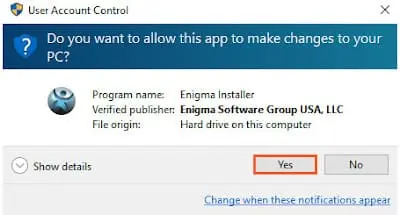
- After installation, you will need to launch the Anti-Malware application. From the welcome screen click on the Start Scan Now button to initiate a new scan of your PC.
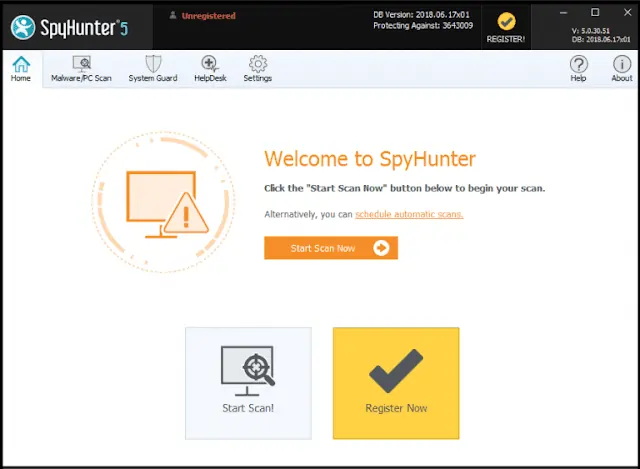
- Once the scanning process begins, it will take some time to run a thorough diagnostic of your PC and find all hidden threats and malware.
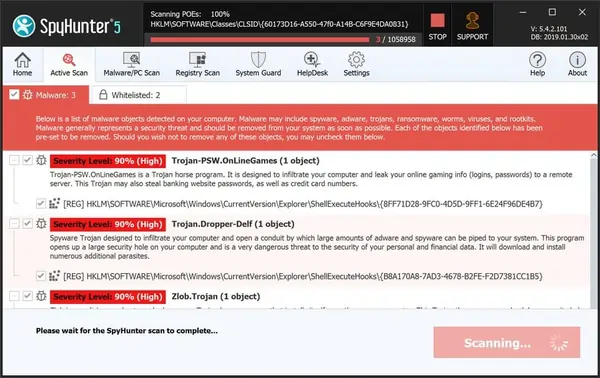
- Soon you will find a complete list of all the threats on your system screen. Then you will need to click on the Next button to delete all the viruses.
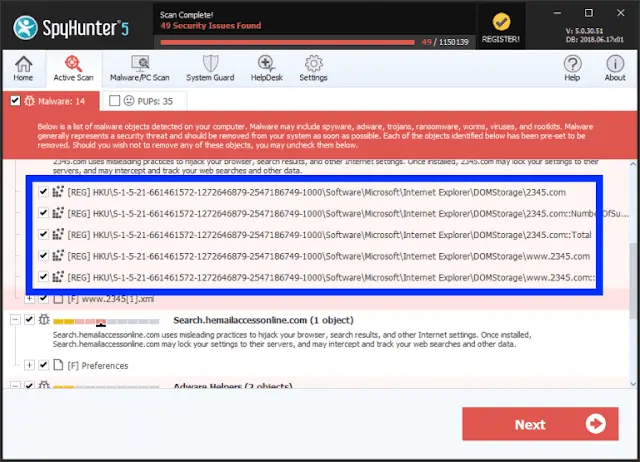
Manual BehavesLike.Win64.Generic.tc Removal Guide
Attention! For the safety of your system, please confirm a few things before you begin manual removal:
- You have done this before, which means you have experience in removing the virus manually;
- That you know your way around PC and all necessary processes and applications;
- You know about Registry entry and the Serious repercussions of any mistake;
- Make sure you can reverse any mistake made during virus removal.
If you don’t attain any of the above standards, then manual removal could be a very risky idea. It is most likely best for you to use the SpyHunter 5 Anti-Malware which is totally secure and efficient method.
Compatible with: Windows 11/10/8/7 (32 Bit and 64 Bit)
Start PC in safe mode with networking
- Click on the Windows and R keys together on your keyboard to open the Windows Run Box.
- Now you will need to type in MSConfig and then click the OK button.
- The System configuration settings box will appear on your computer screen.
- Click on the Boot tab, check the Safe Boot option, and select the network box,
- Finally, you will have to click on Apply and then press the OK button.
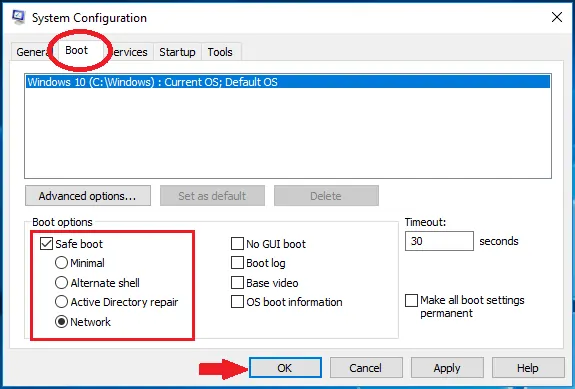
Kill Malicious Process From Task Manager
- Open the Windows Rub box again on your PC by pressing the Windows and R keys together on your keyboard.
- This time you will have to type in taskmgr and then click the OK button to open Windows Task Manager. Look for any unknown or malicious running on your system.
- Select the process which is taking lots of systems resources and then click on the End Task button.
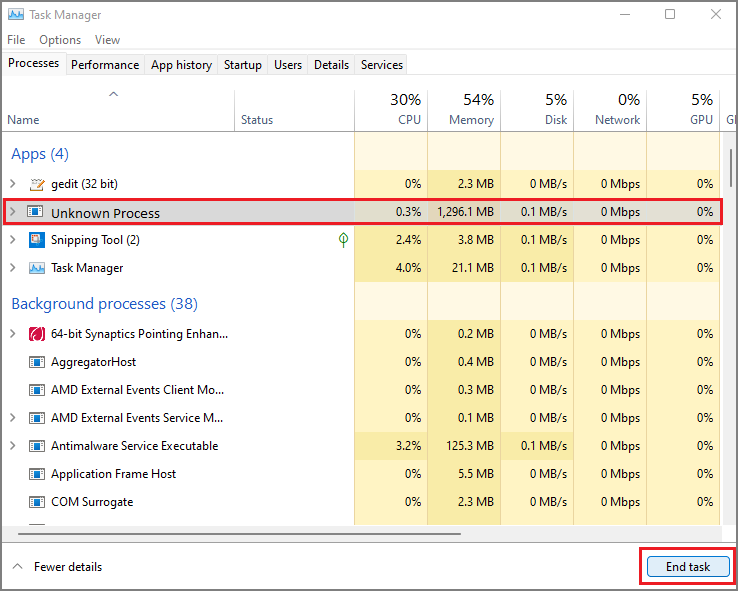
Uninstall BehavesLike.Win64.Generic.tc from Control Panel
- Again you will need to open the Windows Run Box, so press the Windows and R keys together.
- This time you need to open the Windows Control Panel, so type in appwiz.cpl and then click the OK button.
- Programs and Features windows will appear on your computer screen with a list of all the installed applications.
- Now you need to look for any unknown or virus related program and then Uninstall it from your PC.
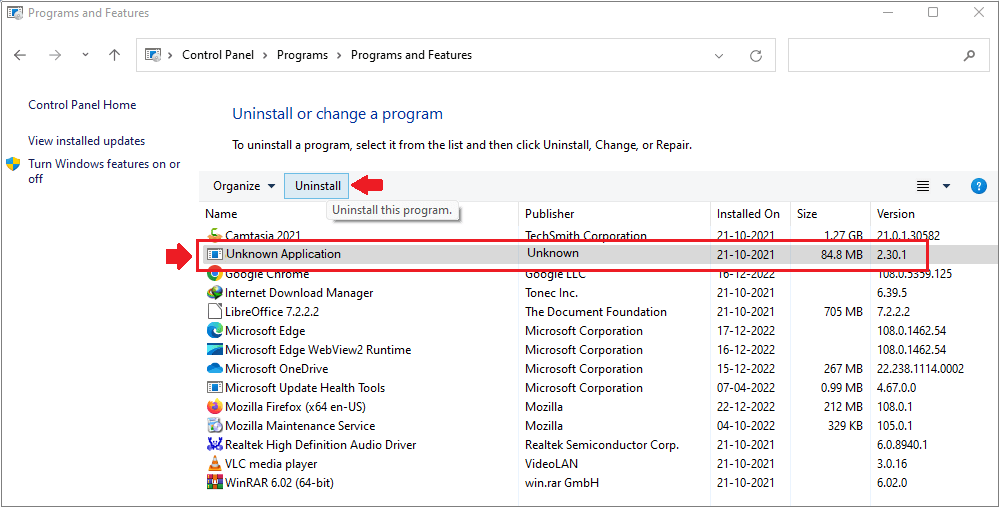
Remove BehavesLike.Win64.Generic.tc From Registry Editor
- Again open the Windows Run Box on your PC by using the Windows and R keys.
- To open the Windows Registry Editor, type in Regedit and click the OK button.
- Now you will have to find the virus related registry files and remove them.
- Press CTRL and F keys together on the keyboard to start a Find query.
- Type the virus name and click on Find Next button to find malicious entries and delete them.
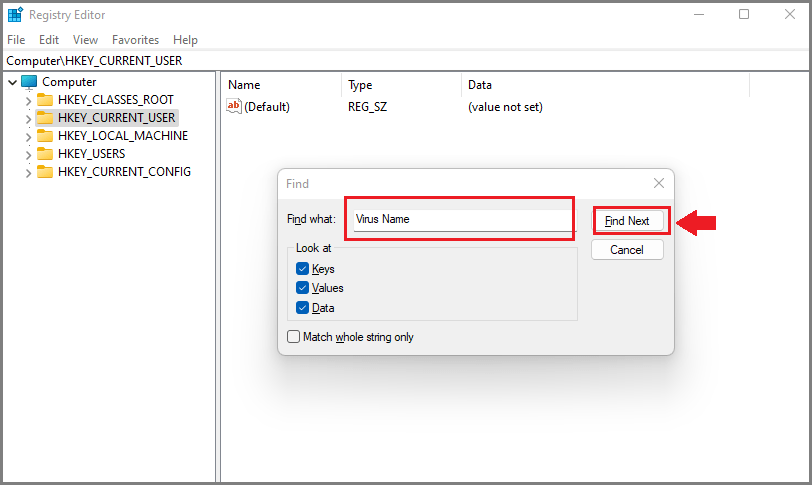
Warning: Meddling with Windows Registry files might not be a good idea if you don’t have advanced knowledge about registry files. Deleting the wrong file can break down your entire system. Proceed at your own risk, or just skip this step. You can choose the Automatic Removal method and avoid all the problems.
Compatible with: Windows 11/10/8/7 (32 Bit and 64 Bit)
Remove BehavesLike.Win64.Generic.tc From Browser
Most of the time, threats like this make several changes to the browser which helps it to track victims’ online activities. They use browser hijacking capabilities to show ads, offers, alerts, and notifications or steal the personal information of the victim. It is important to completely remove the virus from the browser or it may come back. Follow the below steps to remove this infection from your browser.
Remove BehavesLike.Win64.Generic.tc From Google Chrome
Note: Type or copy-paste – chrome://extensions in the URL bar of Google Chrome then press the ENTER button to open the extensions page directly or follow the below steps.
- First, launch the Google Chrome browser then go to the upper right corner and click on the Menu (⋮) option.
- You will see a drop-down menu, select the More tools option and then choose the Extensions option.
- Find any unknown and malicious extensions from the Chrome extensions page and then click the trash can icon to remove them completely.
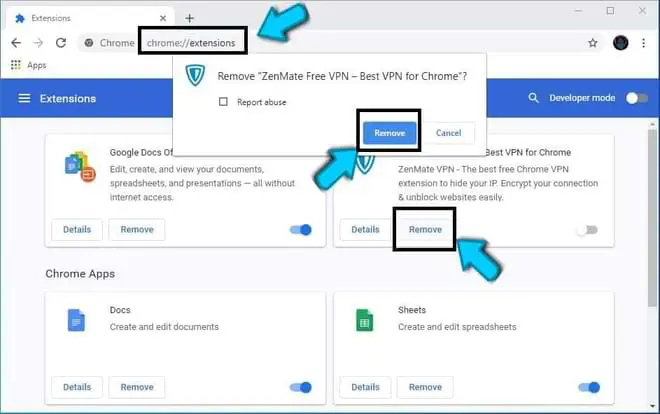
Eliminate BehavesLike.Win64.Generic.tc From Mozilla Firefox
Note: Type or copy-paste – about:addons in the URL bar, Firefox then hit ENTER button to open the extensions page directly or follow the below steps.
- This time launch the Mozilla Firefox browser and take your mouse to the upper right corner and click on Menu (☰) option.
- Firefox drop-down menu will appear on your screen then click on the Add-ons option.
- Choose the Extensions option from the left side menu to see the list of installed extensions on your browser.
- Look for any suspicious or unknown extensions and then uninstall them by clicking on the Remove button.
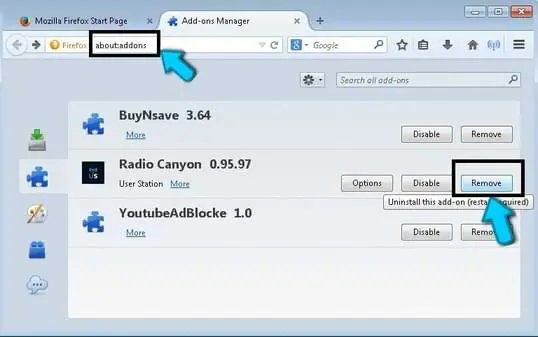
Remove BehavesLike.Win64.Generic.tc From Microsoft Edge
- Edge users will launch their MS Edge browser, go to the upper right corner and click on More Tools (⋮) option.
- Again to see the list of all installed extensions, click on the Extensions option from the Edge drop-down menu.
- Find any suspicious or potentially harmful extension and then click on the Uninstall button to remove it.
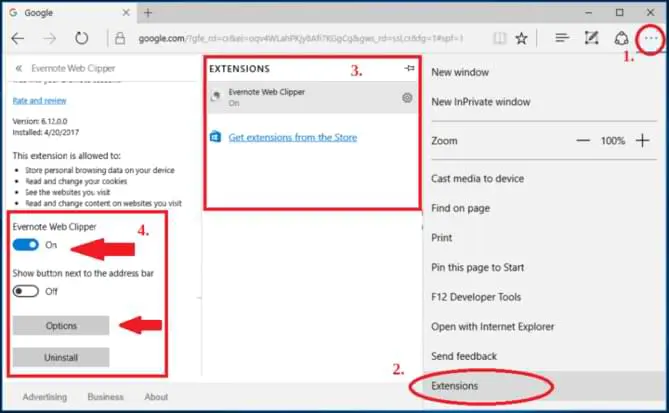
Remove BehavesLike.Win64.Generic.tc From Apple Safari
- If you use the Safari browser then launch it and click on the Safari menu then tap on the Preferences option.
- Now just click on the Extensions tab to see the list of all installed extensions on your browser.
- Find any virus related or malicious extensions then click on Uninstall button.
- Finally, again click the Uninstall button to remove the extension completely.
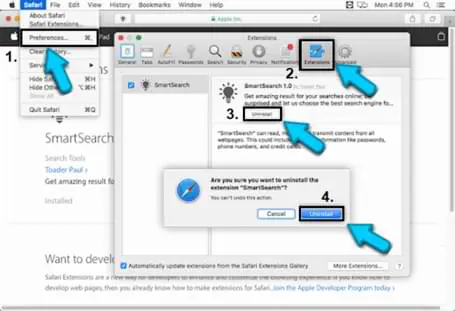
Delete BehavesLike.Win64.Generic.tc From Internet Explorer
- Internet Explorer users also need to click on the Menu option from the upper right corner.
- When the browser’s drop-down list appears, select the manage Add-ons option to see all installed extensions.
- If there are any unknown or malicious extensions then remove them by clicking on Disable button.
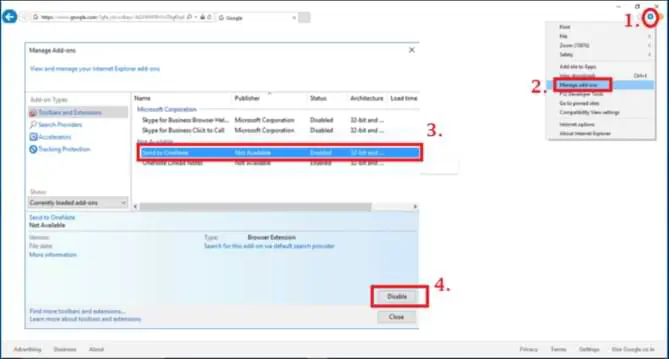
Reset Browser Setting to Default
Once you remove BehavesLike.Win64.Generic.tc from your browser, you might want to reset the browser to default settings to reset any changes made by the virus. Follow the below steps for that :
Google Chrome Web Browser Reset
- First, you need to open Chrome’s settings option by clicking on the Menu (⋮) from the upper right corner.
- You will find a Reset and Clean up option from the left side menu, click on it.
- Now you need to click on the Restore settings to their original defaults option from your screen.
- Finally, give your confirmation by clicking on the Reset Settings button to reset your chrome browser.

Mozilla Firefox Browser Reset
- Launch your Mozilla Firefox browser then go to the upper right corner and click on Menu (☰) option.
- A drop-down menu will appear then click on the Help option to open the Firefox help menu.
- Now click on the More troubleshooting information option.
- Press the Refresh Firefox button and when the system prompts then again give confirmation by clicking on the Refresh Firefox.
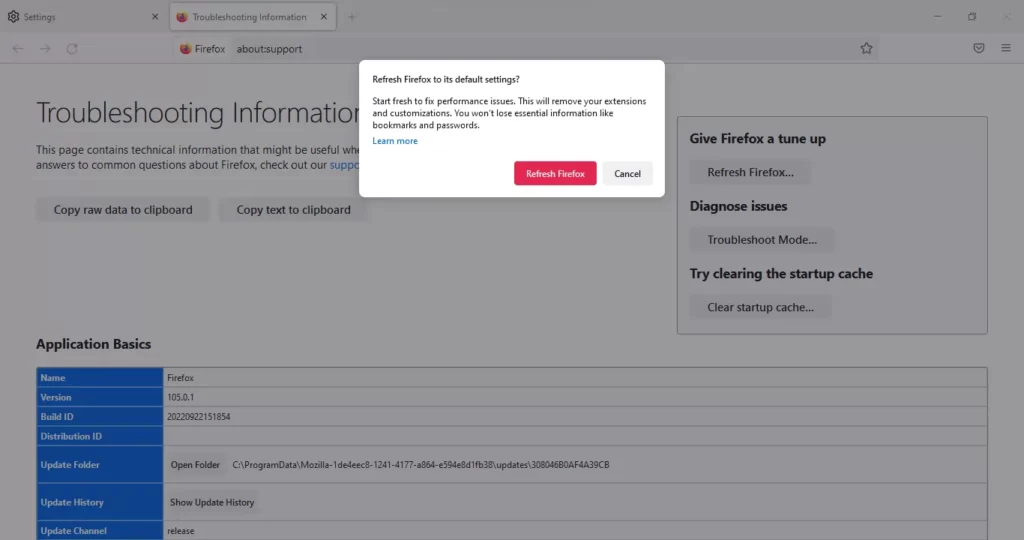
MS Edge Browser Reset
- Launch your Microsoft Edge browser then take your mouse to the upper right corner and click on More Tools (…) option.
- When the Edge drop-down menu appears, scroll down until you see the Settings option and click on it.
- Click on the Reset Settings option from the left side menu and then click on the Restore settings to their default values option.
- Finally, when the system prompts you to verify click on the Reset button.
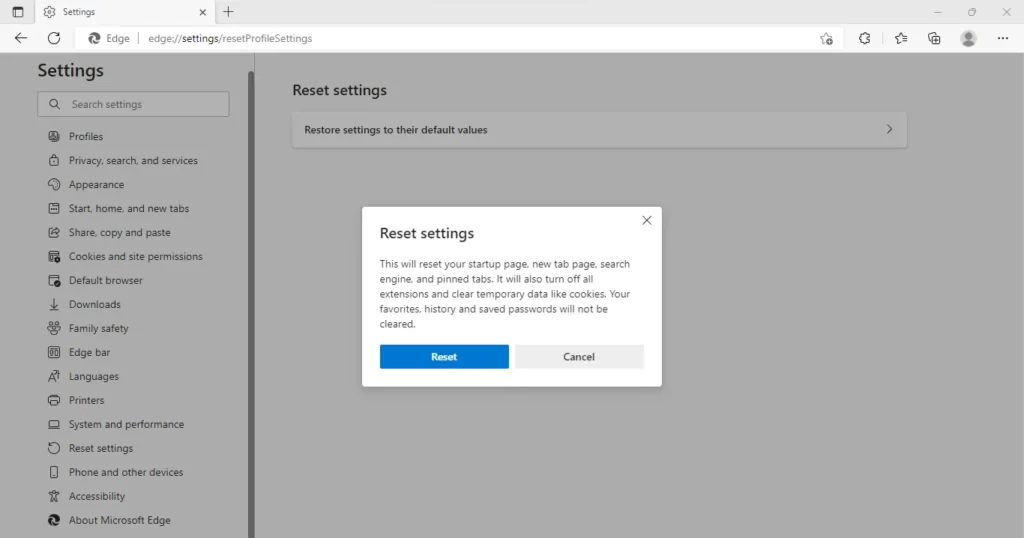
Reset Safari To Default
- Safari users need to open their browser and tap on the Safari menu then select the Reset Safari option.
- Select what you want to clear or you can simply check all the boxes and then finally click on the Reset button.
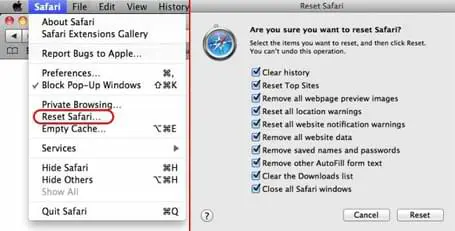
Reset Internet Explorer Browser
- To reset the Internet Explorer browser first click on the Menu icon and hit Internet options.
- Now you will need to click on the Advanced tab and then click the Reset button.
- Check the Delete personal settings option, and again hit the Reset button.
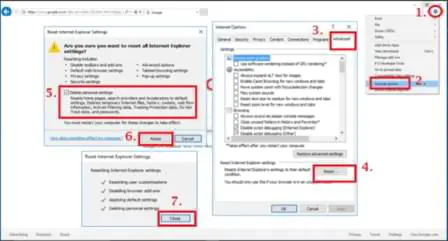
Prevent BehavesLike.Win64.Generic.tc in Future
- Get a powerful Anti-Malware or Anti-virus to fight cyber threats. Free versions do not offer the best protection and cracked security programs can do more damage than good.
- Always keep your Windows firewall active, and your OS updated along with other important programs. Only download updates from official sites or reliable sources.
- Check HTTPS before entering your email, password, credit card details, etc. to any site. Do not visit sites that do not have SSL security. Also, don’t forget to Enable Phishing and Malware protection in Browser.
- Do not download or install any type of pirated software, games, or illegal patches. Avoid using shady sites to acquire freeware programs because they often use software bundling. Never install a program that asks you to inactivate your anti-virus software.
- Avoid opening spam emails from unknown senders. Always scan all the email attachments before opening them. Never click on any suspicious links with some too good to be true offers.
- Connecting your PC or mobile devices to unsafe public Wi-Fi is not a good idea. You can also avoid unwanted threats coming from malicious sites by using a VPN to spoof your connection.
- Keep regular backups of all your important data on external hard drives or cloud drives to avoid data loss in case of a ransomware attack. Also, create a system restore point on your system for security purposes.

Leave a Comment